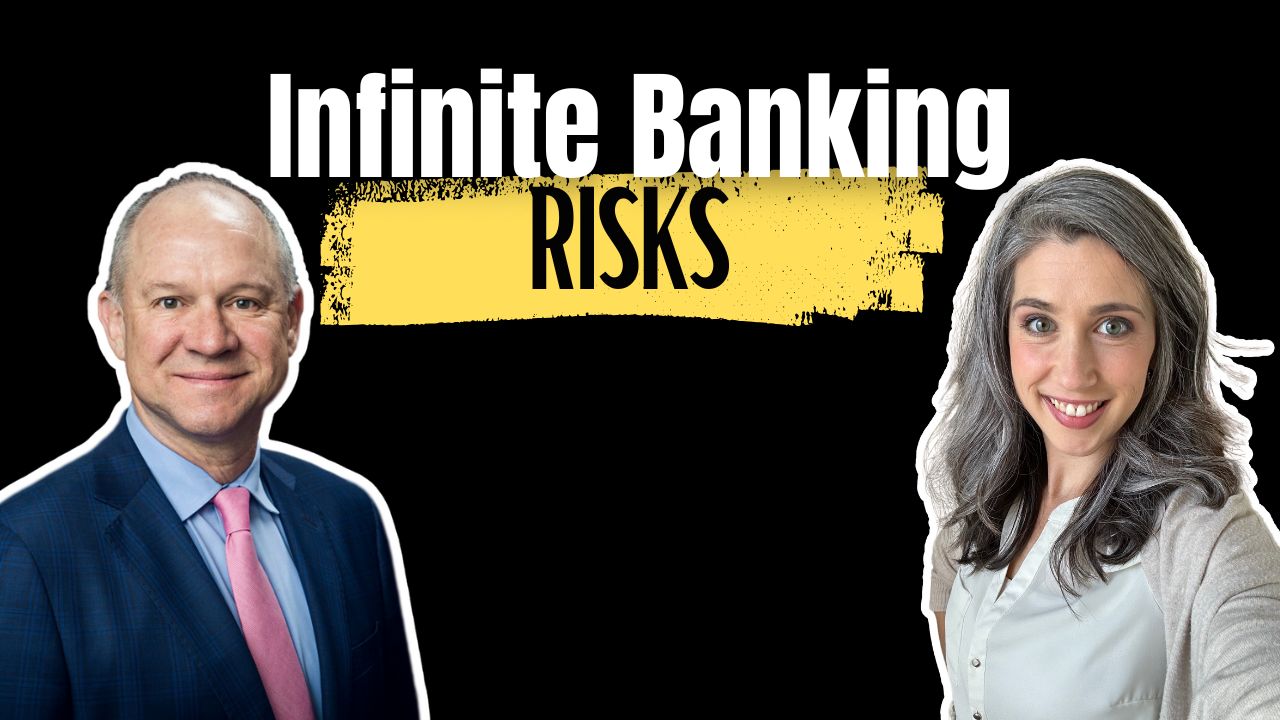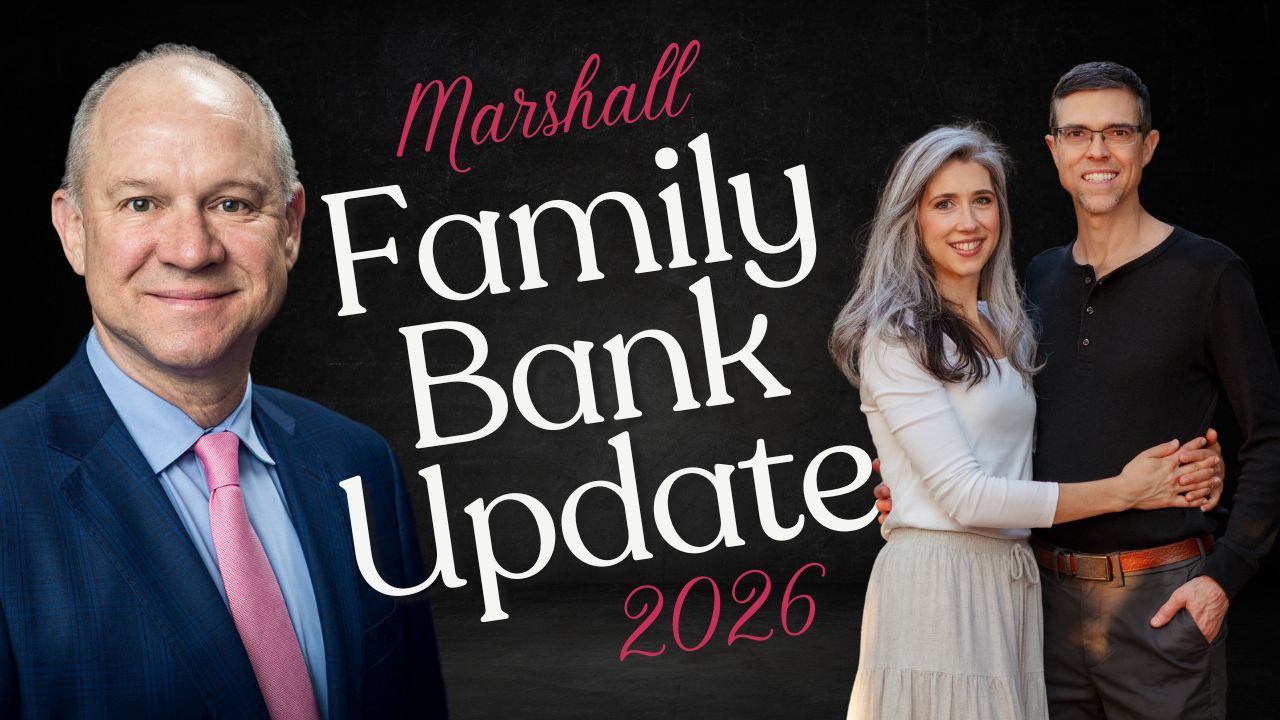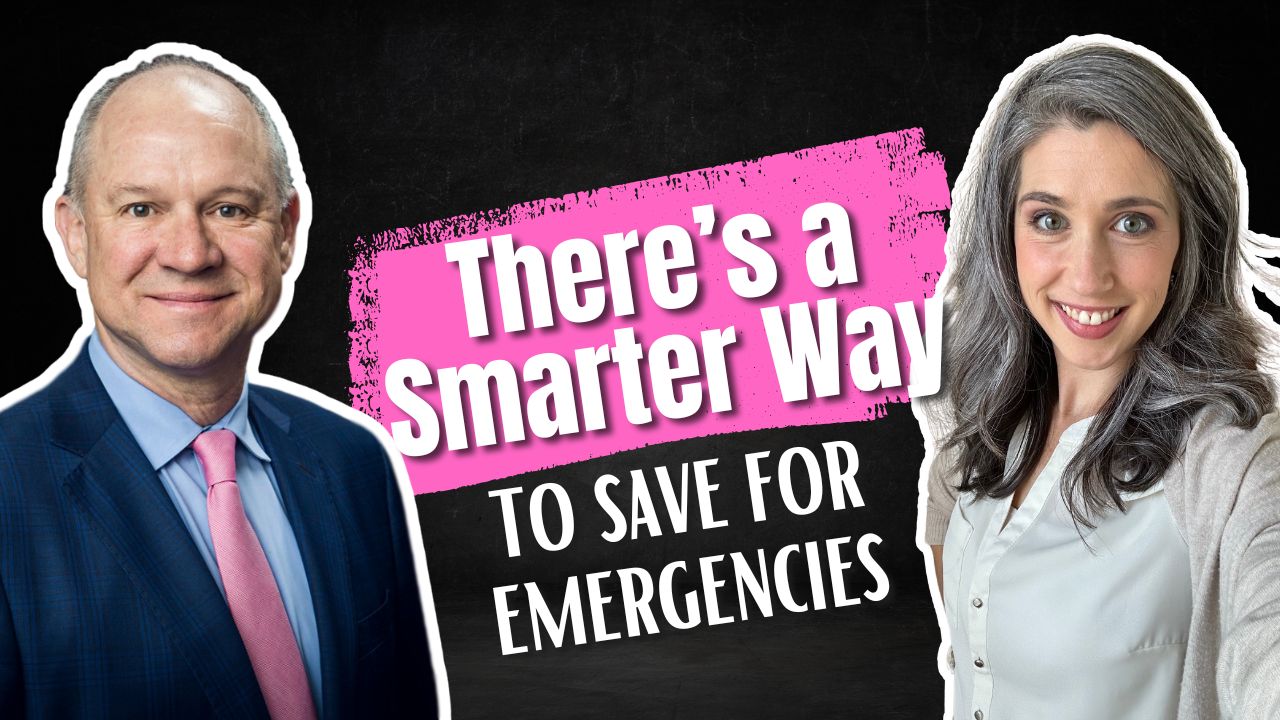
What Are the Risks of Infinite Banking? The Myths, Truths, and Real Concerns
When most people first hear about Infinite Banking, one of the first questions that comes up is: “But what are the risks of Infinite Banking?”
It’s a fair question. We live in a financial world where we’ve been conditioned to look for the fine print, the hidden traps, and the potential downsides of anything that sounds “too good to be true.”
I get it. When you first hear the concept of becoming your own banker through whole life insurance, the mind immediately goes to skepticism: Are the premiums too high? Is whole life a bad investment? What if I can’t afford it later?
Here’s the truth: most of what people call the risks of Infinite Banking aren’t really risks at all. They’re misconceptions, misunderstandings, or simply the result of looking at Infinite Banking through the wrong lens.
In this blog, we’ll pull back the curtain and unpack the myths, expose the real risks, and help you see why Infinite Banking—when understood and implemented correctly—is not risky, but rather one of the most powerful financial strategies you can use to take control of your wealth.
Podcast: Play in new window | Download (Duration: 1:09:42 — 79.8MB)
Subscribe: Apple Podcasts | Spotify | Android | Pandora | Youtube Music | RSS | More
Table of Contents
Common Misconceptions About Infinite Banking
Myth #1: Whole Life Insurance is a Bad Investment
This is the first thing most people say when they hear about Infinite Banking. They’ve been told for years by financial gurus that whole life insurance has a low rate of return and is therefore “a bad investment.”
But here’s the problem: Infinite Banking is not an investment. It’s a system. It’s about controlling the flow of your money, not chasing the next hot stock. Whole life insurance is simply the tool that makes Infinite Banking possible—it provides the guarantees, safety, and contractual structure you need to run your own banking system.
So when someone says Infinite Banking is risky because life insurance is a “bad investment,” they’re comparing apples to oranges.
Myth #2: The Premiums are Too High
Another common objection: “What if I can’t afford the premiums long term?”
Here’s what most people miss. Premiums are not a bill—they are a way of paying yourself first. Every premium dollar you pay is a contribution to your own financial system. Unlike money you pay to a bank, that premium isn’t lost—it builds guaranteed cash value that you can use for opportunities, emergencies, or expenses.
The real risk isn’t paying premiums. The real risk is not valuing your own capital and continuing to let someone else profit from your money.
Myth #3: Infinite Banking = Life Insurance
This is one of the biggest misconceptions. People hear Infinite Banking and immediately equate it with whole life insurance. But Infinite Banking is bigger. It’s about a process—the flow of money, storing it, using it, replenishing it. Life insurance is just the storage tank that makes the process efficient.
Confusing the two is like saying “banking equals a vault.” The vault is just the tool. The banking process is much bigger.
The Real Risks of Infinite Banking
Now let’s get into the real question: What are the actual risks of Infinite Banking?
Risk #1: Not Understanding the Problem You’re Solving
The biggest risk isn’t the product—it’s starting with the wrong perspective. If you think Infinite Banking is just about getting a higher rate of return, you’ll miss the point.
Infinite Banking is about taking control of the banking function in your life. Every dollar you earn flows through someone’s bank. If it’s not yours, it’s theirs. If you don’t understand that problem, you won’t value the solution.
Risk #2: Poorly Designed Policies
Yes, there is risk in design. A policy can be built to maximize early cash value at the expense of long-term efficiency. Or it can be set up with the wrong company—one that doesn’t prioritize policyholders.
This is why working with the right advisor matters. A properly designed policy with a mutual company keeps you, the policyholder, in control. A poorly designed policy can cause frustration, disappointment, or even lapse if you don’t know how to manage it.
Risk #3: Dipping Your Toe In
Bruce often says this: “If you try to dabble in Infinite Banking, that’s risky.”
Here’s why. If you treat Infinite Banking like a side experiment—something you “try out” without fully understanding—you’ll add unnecessary complexity to your financial life. You’ll have one more account to track without truly seeing the benefits.
Worse, you might give up too soon. Infinite Banking is not a get-rich-quick scheme. It’s a way of life. The risk is half-committing and then walking away before the long-term benefits show up.
Risk #4: Wrong Perspective (Consumer vs. Owner)
One of the biggest mindset shifts in Infinite Banking is moving from a consumer mindset to an ownership mindset.
Consumers ask: “What’s the rate of return?” Owners ask: “How do I control the banking system in my life?”
If you approach Infinite Banking as a consumer, you’ll fixate on short-term numbers. But if you embrace it as an owner, you’ll see the long-term impact—control, security, and legacy.
The risk isn’t in the system itself—it’s in approaching it with the wrong mindset.
Why Infinite Banking Works When Done Right
When Infinite Banking is understood and applied correctly, it doesn’t increase risk—it reduces it.
Control vs. Dependency
When your money sits in someone else’s bank, they control it. They earn interest, they make decisions, they take the profits.
When you practice Infinite Banking, you flip the script. You control the capital. You decide when and how to use it. You earn the growth. That’s not risky—that’s empowering.
Recapturing Opportunity Cost
Nelson Nash, the founder of Infinite Banking, often said: “You finance everything you buy.”
You either pay interest to someone else, or you give up the interest you could have earned by paying cash. Either way, there’s a cost.
The beauty of Infinite Banking is that it helps you recapture that cost. Every dollar you use from your system can be replenished—with interest—so you’re no longer losing money to someone else’s bank.
Mutual Companies Align With Owners
One of the reasons Infinite Banking works so well is that we use participating whole life insurance from mutual companies.
In a stock company, the shareholders are the owners. Their goal is profit. In a mutual company, the policyholders are the owners. That means every decision is made in your best interest. Dividends, profits, and growth flow back to you—not Wall Street.
Should You Be Worried About the Risks?
So, back to the original question: What are the risks of Infinite Banking?
The truth is, the risks aren’t in the system itself. The risks are in misunderstanding it, misusing it, or half-committing to it.
The bigger risk, in my opinion, is doing nothing—continuing to hand over control of your money to someone else’s bank, year after year, and letting them profit while you stay stuck in the consumer role.
As Nelson Nash said: “If you know what’s happening, you’ll know what to do.”
When you understand banking as a principle—not just a product—you’ll see that Infinite Banking is not a risk. It’s the solution.
The Bottom Line on Infinite Banking Risks
The next time someone asks you, “What are the risks of Infinite Banking?” here’s the real answer:
- The risks people talk about are usually myths (whole life is bad, premiums are too high).
- The real risks are misunderstanding the concept, working with poorly designed policies, or treating Infinite Banking like a dabble instead of a commitment.
- When done right, Infinite Banking gives you control, recaptures lost dollars, and aligns your money with your values.
The question isn’t “Is Infinite Banking risky?” The real question is: “Are you ready to take control of the banking function in your life—or will you continue to let someone else profit from your capital?”
Friend, the time to act is now. Don’t wait until later. Don’t stay in confusion. Learn, decide, and take control of your financial system.
Book A Strategy Call
Are you ready to take control of your finances and legacy? We offer two powerful ways to help you create lasting impact:
- Financial Strategy Call – Discover how Privatized Banking, alternative investments, tax-mitigation, and cash flow strategies can accelerate your time and money freedom while improving your life today. Let us show you how to align your financial resources for maximum growth and efficiency. Book a Strategy Call with our team today.
- Legacy Strategy Call – If you want to uncover your family values, mission, and vision, and create a legacy that’s about more than just money, we can guide you through the process of financial stewardship and family leadership. Save time coordinating your family’s finances while building a legacy that lasts for generations. Book a Legacy Strategy Call to learn more about how we can help.
FAQ: What Are the Risks of Infinite Banking?
Is Infinite Banking risky?
Not when it’s done right. The main risk is misinterpreting the concept or dealing with poorly designed policies.
What are the downsides of Infinite Banking?
Downsides come from lack of education or poor design—such as high early cash value policies that collapse long-term efficiency.
Is Infinite Banking a scam?
No. It’s a proven strategy based on whole life insurance with mutual companies, used successfully for over 200 years. Is Infinite Banking a SCAM? Dave Ramsey Says So.
Can I lose money with Infinite Banking?
Not in the way you can with investments. Whole life insurance provides guaranteed cash value growth and death benefit. The only “loss” comes if you cancel too early or fail to fund the system properly.
Marshall Family Banking System Case Study: In-Force vs Original Illustration (Part 6)
The moment we realized “liquidity” isn’t a theory Thirteen years ago, Lucas and I thought we were being responsible by storing a lot of our capital in gold and silver. It felt safe. It felt timeless. It felt like the kind of move people make when they’re thinking long-term. And then we needed cash. Not…
Emergency Fund Alternatives: Liquidity That Protects Your Family—Without Sacrificing Growth
The Day the “Emergency Fund” Met Real Life Rachel here. Many tell us the same story: “I saved the emergency fund, but I’m worried I’m losing ground to inflation and missed opportunities.” Because for most people, the “emergency fund” is a lonely pile of cash—stuck in a corner doing next to nothing. It feels safe,…




